Ankur Pathak in Mumbai
For someone who is opposed to the idea of romance ("it's rather dull, no?" she says), it is ironical that Reema Kagti's directorial debut was a film about couples on honeymoon, Honeymoon Travels Pvt Ltd.
It's the same approach, she says, with her second feature, the Aamir Khan, Rani Mukerji and Kareena Kapoor starrer Talaash, due for release on November 30.
The film has managed to create an aura of mystery which works in its favour.
In this interview with Ankur Pathak, Kagti talks about what went into the making of the film, while also trying to convince that Aamir Khan is not the ghost-director of the film.
What made you choose Aamir, Rani and Kareena for the film?
I don't think I chose them. The star cast chose me. It was something about the script that they connected with instantly, especially Aamir. Eventually Rani and Kareena came on board.
The first person we approached was Aamir and at that point, he was shooting Ghajini. We always had him in mind for this role.
He had shown interest but said he was working on a smaller project (Dhobi Ghat) and hence, wasn't reading any new scripts. So we moved on to other actors but none of them were convinced to do the part.
Finally a year later, Aamir was reading scripts again and then we had our chance to narrate the script to him.
A powerful star cast gives the film a really good start, so yes, I won't deny that we were looking for a bankable star.
'It took a very long time to decide on the title'
Image: A scene from TalaashWhy the title Talaash?
We debated the title through and through. It took a very long time to decide on it. The debate was between Zoya (Akhtar), Aamir, Riteish (Sidhwani of Excel Entertainment), Farhan (Akhtar) and me.
Ultimately, we felt that Talaash captures the essence of the film in a great way, as everyone in the film is searching for something.
You are one film old and have three stars in your very next film. Was it tough to direct the three of them?
Not really. They were very cool. I never felt I had to deal with three superstars. They were very accessible and behaved in a regular way.
I was an assistant director on Lagaan and Dil Chahta Hai and knew Aamir from that time. I felt comfortable with him as I had developed an equation with him.
It was a win-win situation for me. But I'm sure there are directors who have had to compromise on content because of the stars.
'I want to be a director who puts an individual stamp on her films'
Image: A scene from Talaash(Laughs) Yes, it is a harrowed man on a mission, sure. And it is set in a crime investigation in Mumbai. I cannot reveal much beyond this.
Having been an assistant director to filmmakers like Ashutosh Gowariker and Farhan Akhtar, do you think they have been a strong influence on you?
All of them have shaped me in a way that I am really thankful for. But I wouldn't say that any one particularly has influenced me and that, according to me, is a good thing.
I want to be a director, who puts an individual stamp on her films.
I love ideas to be brought to the table. Hence, I talk to my cast and my crew. I hate to work in a vacuum.
I encourage the team to throw in their views. The best idea survives a 24-hour challenge and seems like an obvious choice to go ahead with.
'I didn't have any reference points for Talaash'
Image: A scene from TalaashHoneymoon Travels Pvt Ltd came out in 2007. Why did it take five years to take Talaash to the floor?
It wasn't out of choice. Three years after the release of Honeymoon, I wrote another script and we were trying to get it on the floor. But it took up a lot of time. I blame it on bad luck.
Based solely on the trailers, there have been comparisons with Martin Scorsese's Shutter Island and Joseph Payne Brennan's novel, Act of Providence.
People will say whatever they like now, but the important things will come out only after the film's release.
It is an original idea and that is what will remain relevant and truthful. I didn't have any reference points for Talaash.
The idea originated years ago when I was chatting with Zoya (Akhtar, the co-writer). It's got a very strong emotional layer that builds up and that is why I am hell-bent on making the distinction -- of it being a suspense drama rather than a thriller.
'If Rani's a front-bencher, Kareena is the proverbial back-bencher'
Image: A scene from TalaashAamir hides behind the facade of this serious actor but has actually got a very crazy prankster streak in him.
The camera guys use these blowers which would mysteriously vanish and end up in Aamir's hands. These school-boy pranks are what Aamir usually indulges in.
He's been doing this since Lagaan and Dil Chahta Hai so I wasn't really surprised.
How different was the approach of the two actresses, Kareena Kapoor and Rani Mukerji, to their respective roles?
They are two of the finest actresses and have really different approaches.
Rani likes to prepare a lot. She gets obsessive about the role and wants to know everything about her character. What's her character's backstory, what is going on in her head at a specific point...
Kareena has an entirely different approach. In terms of school-children, I'd say Rani is the proverbial front-bencher and Kareena is the proverbial back-bencher.
When we'd have the preps, Kareena would be nowhere to be seen. There were lots of intense discussions with Aamir and Rani, but nothing of that sort with Kareena. We spoke only about the costumes and trials.
But, ultimately, what matters is how you perform once the camera starts rolling. And both of them have got terrific control over their craft.
'There were no creative differences with Aamir'
Image: A scene from TalaashAamir Khan usually takes a lot of time before agreeing to do a film. How did you get him to bite the bait?
Since he generally takes a hell of a lot of time to be convinced for a film, I went well prepared.
I was in Goa for a Paukor tournament when Riteish (Sidhwani) texted me, asking where I was since Aamir wanted to meet me in an hour.
That's the level of surprise he took me by. I obviously didn't make it but we met the following week, narrated him the script and whoa, he was on board.
Actually, Aamir liked the story a lot. He appreciated the screenplay written by Zoya and me. So I feel we got Aamir only because we had strong content.
Aamir is infamous for interfering with the creative aspects of his films. He has been accused of ghost-directing films in which he acts and produces.
Frankly, there weren't any creative differences, as reported. From the time Aamir has come on board, he has helped me take the project ahead from the script to the film that it has become.
He has been supportive as well as co-operative. It is wonderful to work with him as an actor. His inputs are of great creative help and his talent cannot be matched as he is also a wonderful producer.
'The entire team was very respectful of me as director'
Image: Aamir Khan and Rani Mukerji in TalaashThe media writes whatever they feel like as they have to sell their newspapers and magazines.
A couple of reporters actually called for clarification on the same issue yet my quotes were insignificantly put in the very end so it appears as an afterthought.
Two directors -- Amol Gupte and Anusha Rizvi -- fell out with Aamir during their respective films, Taare Zameen Par and Peepli Live respectively.
I cannot comment about others. For me, it was always my choice whether to go ahead with a particular idea pitched by any of the team.
Whether it was Zoya or Farhan or even Aamir, they were always conscious of the fact that I am the director and hence I enjoy the freedom, and have the control and the authority.
I would bounce a lot of ideas off Aamir, who turned out to be the most helpful. Zoya would get annoyed when I'd obsess over the film but Aamir never got tired of listening to my banter.
There were a lot of inputs but never any interference. Nor once did he step on my toes. The entire team was very respectful of me as director.
'The story of Talaash moves beyond the traditional narrative of suspense'
Image: A scene from TalaashWere you apprehensive about shooting in the seedy lanes of Kamathipura?
We didn't shoot in Kamathipura itself; we shot in an area close to it. The reason we did that was purely because of the architecture of that area.
We were looking to set up the exterior of a brothel. We didn't do any kind of documentary shoot in Kamathipura.
It is popularly perceived that suspense dramas, for obvious reasons, don't have repeat value. What are your thoughts on that?
I feel that even if you know the end (of Talaash), it won't matter much because the film is much more than that. It moves beyond the traditional narrative of suspense and relies heavily on a strong emotional core.
'I don't have a problem with commercial films, I have a problem with bad films'
Image: Rani Mukerji, Reema Kagti and Zoya AkhtarHow would you classify Talaash then?
I don't make distinctions between commercial cinema and art-house or any other for that matter. I can only distinguish between a good film and a bad one.
A film could make Rs 100-200 crore but you will rarely meet a person who has actually loved the film. On the other hand, let us take an English Vinglish, which made Rs 60 crore at the box office but was universally loved.
So the box office is not my parameter for gauging a film's quality. Accountants function that way, not filmmakers.
I don't have a problem with commercial films. I have a problem with bad films. Talaash is middle-of-the-road cinema.
What kind of relationship do you have with your co-writer Zoya Akhtar?
When we are writing, there is absolutely no turmoil because we are both wearing the writer's hat. There's a rule where no one gets to say, ''Hey, I'm the director so this will be it.''
The reason is simple. We write and we justify the actions and reactions of our characters and anything that is debatable when we come back on the second day and one of it seems like an obvious choice.
There's no conflict on intellectual or creative superiority or anything of that kind.
'I'm not a big fan of romance'
Image: Reema KagtiPhotographs: Abhijit Mhamunkar
But isn't it inevitable that her aesthetics in direction will influence your own brand of filmmaking?
The reason we got writing together was because we share a similar aesthetic and sensibility. This is the reason I never feel we are in conflict with each other. In fact, we complement each other in a very healthy way.
We were not trying to arrive at a hit soundtrack. We never felt the need to add that one hit item song that whacks around the film. Also, you'll never see any song that is detached from the narrative. If you miss out on the song, you'll miss out on some piece of information.
Did you spend your childhood watching Hindi films?
A lot! As a kid I would watch all mainstream Bollywood films. I was obsessed with Amitabh Bachchan. So much so, that I wanted to be him! I had middle-parting hair and I would mouth dialogues from all his films.
That shaped my idea of Bollywood. Today I'm exposed to all kind of films -- from Hollywood to world cinema to some of our regional films.
I'm a movie buff and watch almost everything that is playing. However, I don't enjoy films with too much gore in them. Nor am I a big fan of romance as it tends to get boring eventually.

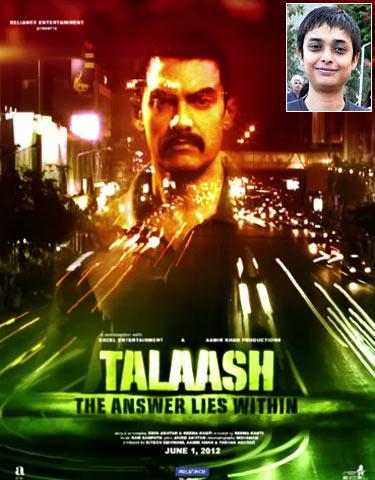
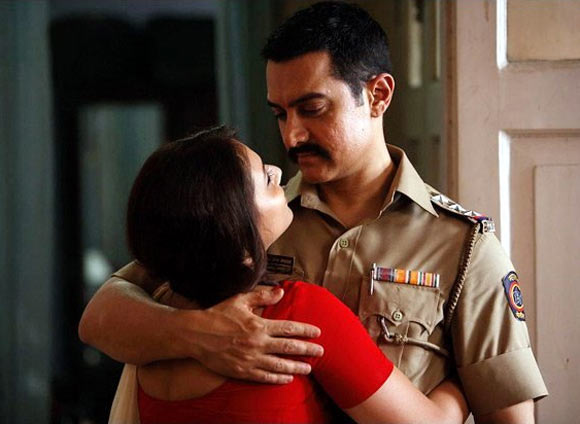
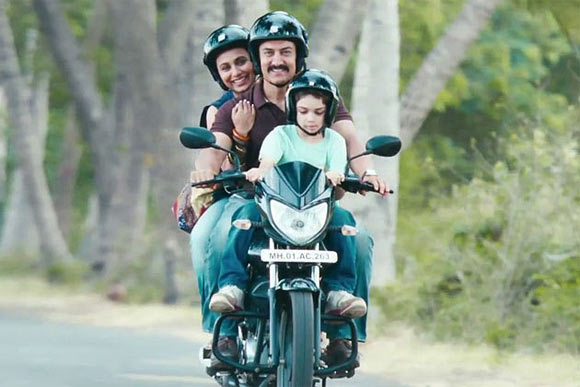
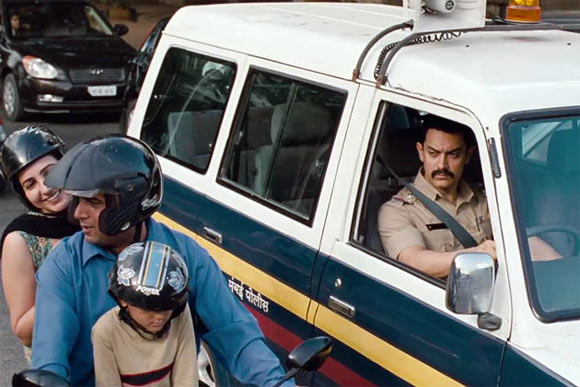
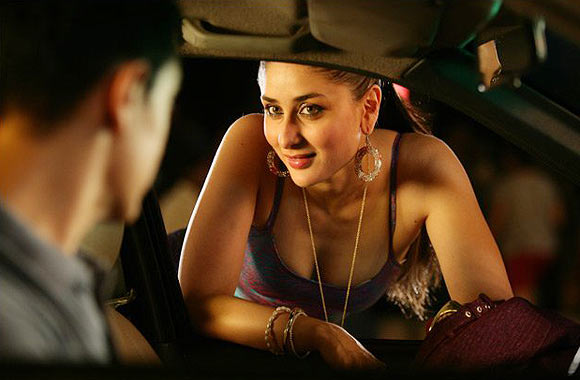
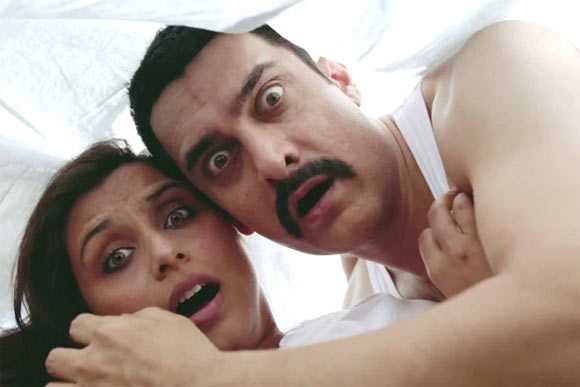
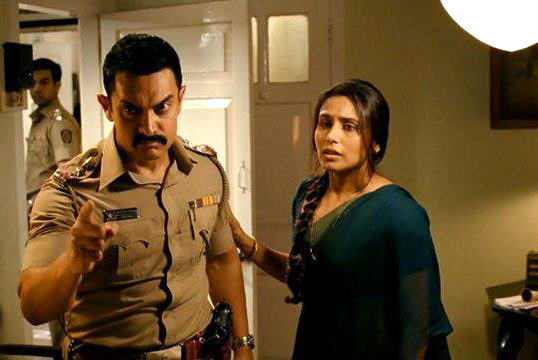
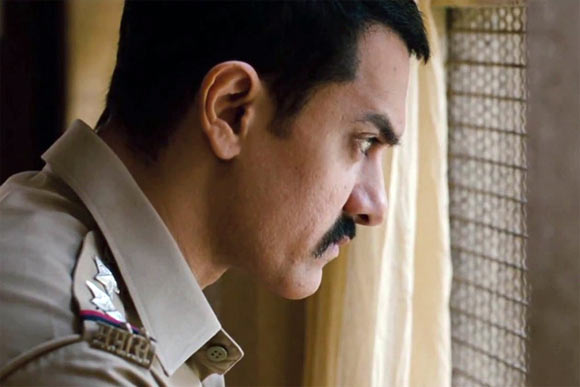
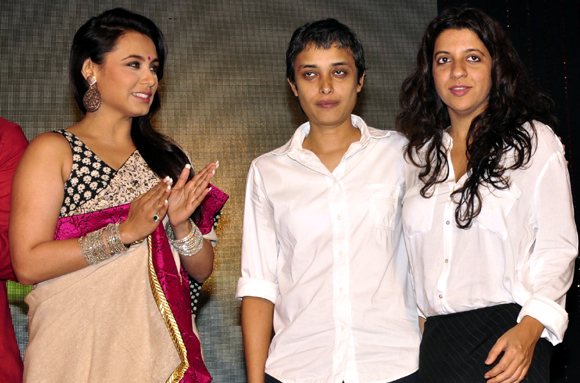
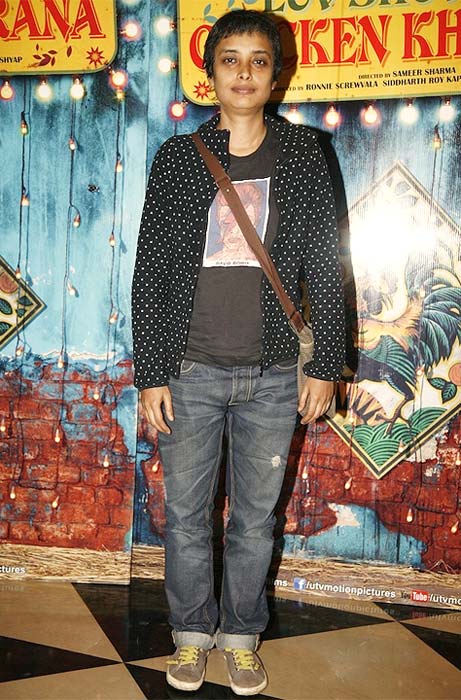
Comment
article